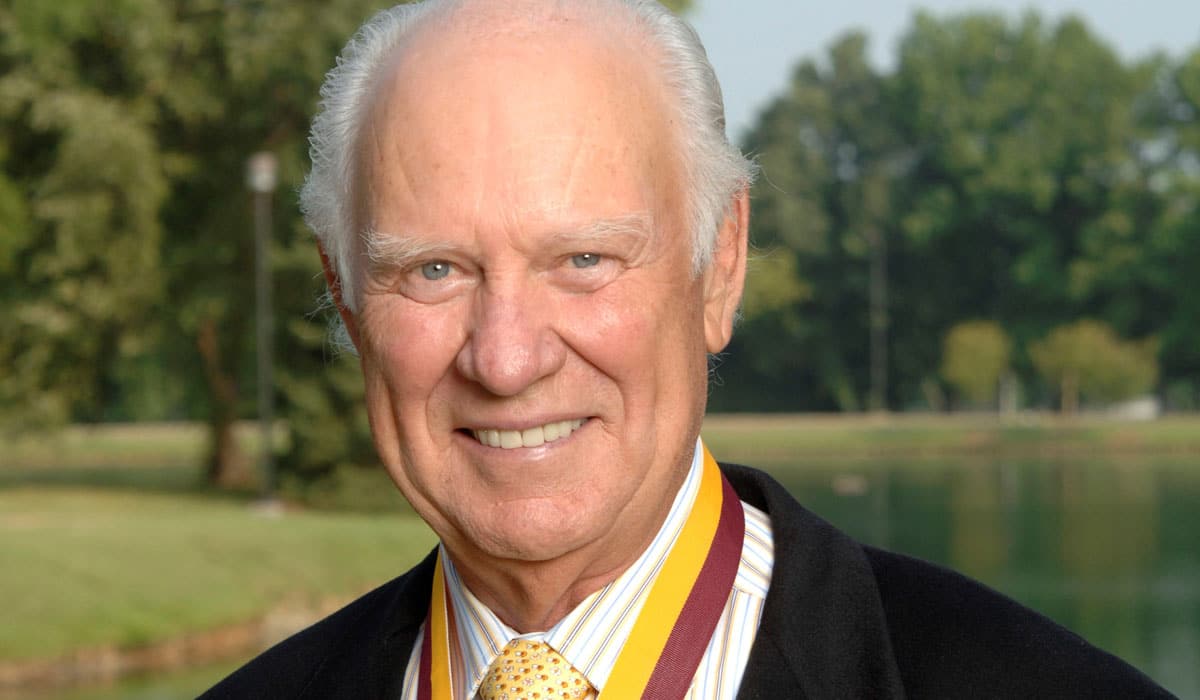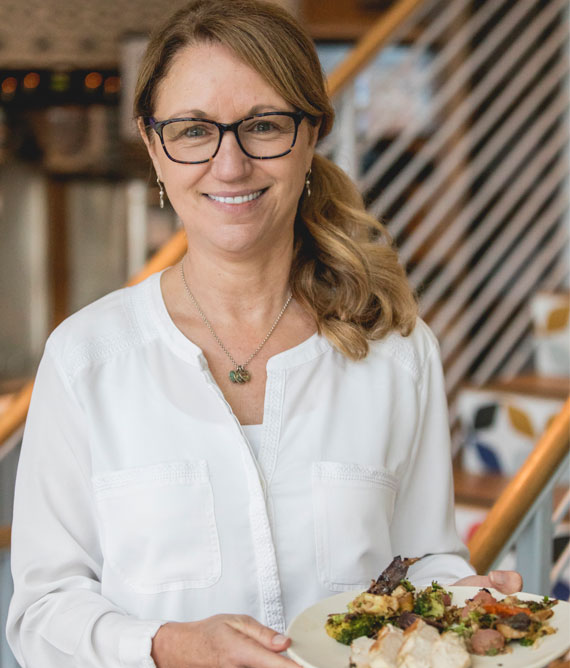Because Modern Market Eatery was founded in 2009 during the Great Recession, CEO and Co-founder Anthony Pigliacampo says the brand has always taken a long-term view beyond current conditions.
When the company started in Boulder, Colorado, it knew the future would be brighter. That allowed Pigliacampo and his team to patiently make investments in the business on “what we thought was right and where we thought the puck was going.” Pigliacampo feels the same way about the COVID-19 pandemic.
If you asked Pigliacampo a year ago about his thoughts on the industry, he would’ve described it as “a little frothy and a little over-built.” He didn’t expect the landscape to be course-corrected so quickly, but an unprecedented global pandemic is capable of such things. As a friend of his likes to say, “Events beyond your control often accelerate the inevitable.”
So just like the Great Recession, Pigliacampo can’t help but to feel optimism. Market share is desaturating, the labor pool is growing, and prime real estate is becoming available. Additionally, the pandemic pushed the industry toward a digital revolution, a road Modern Market was headed toward before COVID existed.
While business was incredibly difficult in March and April, the nearly 30-unit fast-fine concept is now seeing positive comp sales even with dining rooms closed.
“When I look on our immediate horizon, things are definitely a bit choppy, but we’re continuing to make investments in the business because we see this inflection towards customers wanting these alternate channels of digital ordering and delivery, and we’re just very well-suited for that,” Pigliacampo says. “… We have that long-term view of things and it makes us, I think, really optimistic. And I also think that the downturns in the end are good for the industry. I think that a healthy industry is like a healthy forest that has to burn every now and then. They let the strong survive.”
One of those investments that Pigliacampo refers to is a new web ordering experience that was custom-built from the ground up. The CEO said Modern Market emphasized that going forward, it didn’t want to have a white label online ordering system like every other brand. Digital orders have since increased, a sign guests approve of the new experience, Pigliacampo says.
This action is enabling Modern Market to test a new kitchen prototype in its most profitable restaurant. The design consists of a two-sided line that more than doubles production capacity. So as the restaurant receives large online orders, it’s able to produce those without disrupting the normal flow of people ordering inside. Pigliacampo says Modern Market rolled out versions of this in a couple of new stores, but this latest iteration is a fully maximized model that brings production capacity the brand has never had.
The new prototype went live December 15 after closing two weeks for remodeling.
“Those are the sorts of things you could do in a pandemic because the dining room’s closed,” Pigliacampo says. “It’s like, well, it’s a good time to close that restaurant and do that. … It really allows us to take advantage of all these digital investments that we’ve made.”
Modern Market’s success during COVID can also be attributed to its better-for-you menu as health remains top of mind for consumers. The brand sells a collection of customizable chef and protein bowls, sandwiches, pizza, soup, salad, beer and wine, and sides like mac and cheese and mashed potatoes.
The chain saw the biggest growth in the dinner daypart, with roasted chicken, roasted vegetables, and a side topping the sales charts.
“You can’t get that from fast food, but you could get it from Modern Market,” Pigliacampo says. “I think we’re seeing a lot of people realize that, ‘Gosh if I’m stuck at home all the time, and I don’t want to cook all the time, how can I get home-cooked, high-quality food?’ That has really driven a lot of our success—healthier, really straightforward items, but super high ingredient quality. I think there’s just a ton of demand for that. And we really, I think, watched our business blossom because we have food that a family of four can order and have a great healthy dinner that’s not super expensive and tastes great. Not a lot of options for that.”
Higher sales and more customers have fueled expansion, particularly in the Dallas and Austin markets where Modern Market already has eight stores. The chain is also looking aggressively at Ohio, Oklahoma, Nebraska, Utah, and New Mexico—essentially the areas that surround the home state of Colorado. Pigliacampo says the brand is taking advantage of a changing landscape. He notes Modern Market’s key customers are migrating to Texas, including the exodus of tech companies from California.

Markets are ripe for disruption, which is why Modern Market is testing its first ghost kitchen in Tempe, Arizona, to supplement three stores located in the Greater Phoenix area. Pigliacampo explains the ghost kitchen is an experiment to see how the brand performs in a pure virtual environment. It also hopes to learn how Modern Market fits into 200 square feet from a production standpoint.
“Our culinary team and operations team spent a lot of time designing the kitchen equipment so that we could fit in that small format and still produce our food,” Pigliacampo says. “And I think that we’ve learned a ton from doing that. That will inform future restaurant designs. Also it takes advantage of this major investment we made in digital and having this web presence and ability to drive traffic to our website in areas that we don’t have a physical location. But if we can—for a low cost of capital—put a virtual location there, that gives us a lot of opportunity to expand the brand going forward.”
Modern Market’s other virtual investment comes in the form of Honest Pizza, a delivery-only brand operating out of the Broomfield, Colorado location. The menu features unique handmade pizzas such as New Mexico, which features green chili, organic mozzarella, fresh jalapeño, Berkshire pulled pork, cilantro, cotija, and lime, or Backyard BBQ Sweet Potato, which is topped with Lillie’s Smoky Barbeque sauce, organic mozzarella, roasted corn, sweet potato, red onion, fresh jalapeño, and smoky crema.
Pigliacampo says Honest Pizza was a pre-pandemic idea to build toward the company’s goal of becoming a digital-first brand. Modern Market looked at its kitchens and realized it had a lot of capacity with pizza that wasn’t being leveraged. The restaurant also had a significant amount of research and development around pizza that, for a variety of reasons, had not been rolled out under the Modern Market umbrella. Pigliacampo says the team thought it would be fun to see what happens if the concept ran with all of that innovation and ideation to a different brand.
The CEO notes that the virtual brand’s name comes from Modern Market’s desire to sell a clean pizza.
“I don’t think most people would sit around and say that pizza’s good for you necessarily,” Pigliacampo says. “But our view is that you can have an indulgent food, but the ingredients could still be incredibly high quality and better for you, so that really was the idea. I think it’s the cleanest supreme pizza you’ll ever have. The ingredients are all super high quality. And I like to say that the great thing about this is it’s just pizza. There’s no artificial anything. There’s no preservatives, there’s nothing.”
As of now, an overwhelming majority of Modern Market’s dining rooms are closed. But Pigliacampo says the chain has seen this movie before and operators have become proficient without them. He adds that the loss of dine-in customers hasn’t been as tough as he once thought as digital channels have absorbed the lack of indoor availability. To him, the biggest challenge is continuing to keep employees safe as COVID cases rise across the country.
Positive sales despite closed dining rooms and office buildings bodes well for post-pandemic results, Pigliacampo says. He’s confident that Modern Market will look back at this era and view it as a momentous turning point in its history.
“As painful and challenging as this year was, I wouldn’t trade it,” Pigliacampo says. “I think that it forced us to be super innovative as a business and has really caused us to rapidly move in a direction that will make the business more successful in a post-pandemic world.”





